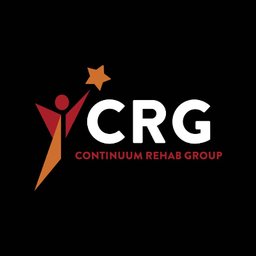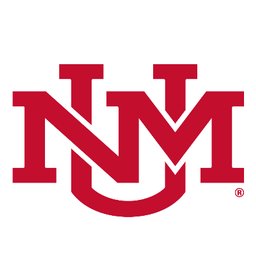Job Opportunities in United States

November 6, 2024
University of Utah
Salt Lake City
Director of the Center for Medical Cannabis Research
Posting Details
The University of Utah, an AA/EO employer, encourages applications from all qualified individuals, and provides reasonable accommodation to the known disabilities of applicants and employees. The University of Utah values candidates who have experience working in settings with students, staff, faculty and patients from all backgrounds and possess a strong commitment to improving access to higher education, employment opportunities, and quality healthcare for historically underrepresented groups.
Position Information
Position/Rank
Director of the Center for Medical Cannabis Research
Department
00952 - Division of Epidemiology
City
Salt Lake City, UT
Track
Track Dependent on Qualifications
New Position to Begin
When filled
Details
The University of Utah is seeking a nationally recognized cannabis researcher, to serve as the Director of the Center for Medical Cannabis Research (CMCR), a state-sponsored center created by the Utah State Legislature through House Bill 230 during the 2023 legislative session. The Director will organize, implement, and oversee scientific and administrative aspects of the CMCR, in partnership with the Senior Vice President of Health Science Research Unit (SVPHSRU) senior manager, the steering committee, external advisory board, and key collaborators.
The Director will develop and implement a wide range of strategic, proactive, and capacity building activities that enable and enhance cannabis-related research, as well as coalesce researchers to inform health care providers, lawmakers, and the public about evidence-based practices for medical cannabis. The Director will lead the strategic planning and execution of the CMCR. In addition, this role will serve as a liaison for CMCR engagement and interactions with the Office of the President’s government relations staff and legislative bodies. This involves lead committees focused on assessing the impact of advancements within the field and communicating evidence-based research and outcomes to the legislature and public, participating in appropriate request development and testimony, and ensuring alignment and strategic implementation of H.B. 230 directives.
We are seeking a dynamic and visionary Director for the CMCR who excels in the following areas:
- Leadership & Team Building: Demonstrated ability to lead and inspire multidisciplinary teams, including cannabis researchers from various academic institutions across Utah.
- Research Expertise: Extensive knowledge of cannabis-related research and its applications.
- Center Development: Proven experience in establishing successful research centers or collaborative cannabis research programs.
- Strategic Planning: Skilled in setting strategic direction, overseeing implementation, and ensuring effective execution of initiatives.
- Grant Funding Success: Track record of securing extramural grant funding, with a focus on NIH grants, including collaborative funding opportunities.
- Mentorship & Development: Commitment to fostering faculty development and mentorship programs.
- Collaborative Research Culture: Promote a culture of fairness and belonging in research, in alignment with H.B. 230, while supporting a collaborative and translational research approach.
- Communication Skills: Excellent communication abilities, both written and verbal.
- Legislative Oversight: Capable of leading, implementing, and managing legislative directives effectively.
- Organizational Management: Maintain alignment with organizational goals while managing budgetary oversight.
- Stakeholder Engagement: Proactively engage with key stakeholders, ensuring active participation in committees and boards.
- Literature Reviews & Dissemination: Collaborate with senior management and research associates to conduct evidence-based literature reviews and develop dissemination plans for researchers, providers, policymakers, and the public.
- Best Practices Development: Lead a research committee to establish best practices and guidelines for the medical cannabis program.
- Institutional Representation: Act as a representative of the institution, engaging with the university, community, external visitors, and lawmakers to foster partnerships.
- Funding Identification: Identify federal and philanthropic funding opportunities and collaborate with faculty to form research and clinical teams to pursue these opportunities.
- Seed Grant Program Oversight: Oversee the annual seed grant program to stimulate innovative cannabis research projects.
- Community Engagement: Partner with senior management to develop and execute community engagement events such as symposiums, workshops, and seminars, while managing budget requirements.
- Networking Opportunities: Create and nurture networking and collaborative research opportunities with external partners and national cannabis research centers.
- Reporting & Evaluation: Complete annual evaluations and reporting activities for senior leadership, including SVPHS and DHHS.
The Director will have access to outstanding research services (e.g. Utah Population Database, Clinical & Translational Science Institute, etc.), access to clinical data from the Medical Cannabis Outcomes Research Evaluation (MCORE) team and the ability to leverage resources from the Center for Human Toxicology (CHT).
Minimum qualifications: Ph D, MD, or Clinical-related Doctorate
Preferred qualifications: an outstanding record of research productivity in cannabis research which may include any of the following areas, but is not limited to:
- Cannabis Plant Research: Investigating various aspects of Cannabis sativa, including the whole plant, cannabis extracts, enriched extracts, cannabinoid compounds, non-cannabinoid constituents, synthetic cannabinoids, and components of the endocannabinoid system (the signaling pathways activated by cannabinoids).
- Clinical and Public Health: Experience in medical cannabis programs and public health initiatives related to cannabis use.
- Innovative Approaches: Development of novel strategies to assess the therapeutic risks and benefits of medical cannabis.
- Analgesic Properties: Research focused on the analgesic effects of cannabinoids and their constituents.
- Safety and Interactions: Study of contraindications, drug-drug interactions, adverse effects, and the risk of cannabis use disorder.
- Delivery Methods: Investigation into the health effects of various cannabis delivery methods, including vaporization, ingestion, topical application, and combustion.
- Cultivation and Production Techniques: Research on innovative cultivation, synthesis, and production methods to support regulatory standards and research.
- Social and Economic Aspects: Exploration of the social, healthcare, policy, and economic factors related to medical cannabis access, usage, and regulation.
Apply with a cover letter, CV, and research statement at:https://utah.peopleadmin.com/postings/173096
Contact for Inquiries: Valerie Ahanonu, Valerie.ahanonu@hsc.utah.edu
Located in metropolitan Salt Lake City in the foothills of the Wasatch Mountains, the University of Utah is the state’s flagship research institution and emphasizes exceptional scholarship, quality teaching, and professional service. The university serves over 32,000 students from across the U.S. and the world with over 72 major subjects at the undergraduate level and more than 90 major fields of study at the graduate level, including law and medicine. Known for its proximity to seven world-class ski resorts within 40 minutes of campus, the University of Utah encourages an active, holistic lifestyle, innovation, and collaborative thinking to engage students, faculty, and business leaders. Salt Lake City is a vibrant, major metropolitan area with a diverse, multicultural population and numerous cultural and outdoor activities. This location offers unparalleled opportunities for outdoor recreation, with ten world-class ski resorts and five national parks within hours of the city.
The University of Utah Health (U of U Health) is a patient focused center distinguished by collaboration, excellence, leadership, and respect. The U of U Health values candidates who are committed to fostering and furthering the culture of compassion, collaboration, innovation, accountability, acceptance, integrity, quality, and trust that is integral to our mission.
EEO/Non-Discrimination Information
All qualified individuals are strongly encouraged to apply. Veterans’ preference is extended to qualified applicants, upon request and consistent with University policy and Utah state law. Upon request, reasonable accommodations in the application process will be provided to individuals with disabilities.
The University of Utah is an Affirmative Action/Equal Opportunity employer and does not discriminate based upon race, ethnicity, color, religion, national origin, age, disability, sex, sexual orientation, gender, gender identity, gender expression, pregnancy, pregnancy-related conditions, genetic information, or protected veteran’s status. The University does not discriminate on the basis of sex in the education program or activity that it operates, as required by Title IX and 34 CFR part 106. The requirement not to discriminate in education programs or activities extends to admission and employment. Inquiries about the application of Title IX and its regulations may be referred to the Title IX Coordinator, to the Department of Education, Office for Civil Rights, or both.
To request a reasonable accommodation for a disability or if you or someone you know has experienced discrimination or sexual misconduct including sexual harassment, you may contact the Director/Title IX Coordinator in the Office of Equal Opportunity and Affirmative Action (OEO/AA). More information, including the Director/Title IX Coordinator’s office address, electronic mail address, and telephone number can be located at:
https://www.utah.edu/nondiscrimination/
Online reports may be submitted at oeo.utah.edu
The University of Utah is an Affirmative Action/Equal Opportunity employer and does not discriminate based upon race, ethnicity, color, religion, national origin, age, disability, sex, sexual orientation, gender, gender identity, gender expression, pregnancy, pregnancy-related conditions, genetic information, or protected veteran’s status. The University does not discriminate on the basis of sex in the education program or activity that it operates, as required by Title IX and 34 CFR part 106. The requirement not to discriminate in education programs or activities extends to admission and employment. Inquiries about the application of Title IX and its regulations may be referred to the Title IX Coordinator, to the Department of Education, Office for Civil Rights, or both.
To request a reasonable accommodation for a disability or if you or someone you know has experienced discrimination or sexual misconduct including sexual harassment, you may contact the Director/Title IX Coordinator in the Office of Equal Opportunity and Affirmative Action (OEO/AA). More information, including the Director/Title IX Coordinator’s office address, electronic mail address, and telephone number can be located at:
https://www.utah.edu/nondiscrimination/
Online reports may be submitted at oeo.utah.edu
Notice
The University is a participating employer with Utah Retirement Systems (“URS”). Eligible new hires with prior URS service, may elect to enroll in URS if they make the election before they become eligible for retirement (usually the first day of work). Contact Human Resources at (801) 581-7447 for information. Individuals who previously retired and are receiving monthly retirement benefits from URS are subject to URS’ post-retirement rules and restrictions. Please contact Utah Retirement Systems at (801) 366-7770 or (800) 695-4877 or University Human Resource Management at (801) 581-7447 if you have questions regarding the post-retirement rules.
This position may require the successful completion of a criminal background check and/or drug screen and immunizations. https://safety.utah.edu/safetyreport This report includes statistics about criminal offenses, hate crimes, arrests and referrals for disciplinary action, and Violence Against Women Act offenses. They also provide information about safety and security-related services offered by the University of Utah. A paper copy can be obtained by request at the Department of Public Safety located at 1658 East 500 South.
This position may require the successful completion of a criminal background check and/or drug screen and immunizations. https://safety.utah.edu/safetyreport This report includes statistics about criminal offenses, hate crimes, arrests and referrals for disciplinary action, and Violence Against Women Act offenses. They also provide information about safety and security-related services offered by the University of Utah. A paper copy can be obtained by request at the Department of Public Safety located at 1658 East 500 South.
Special Instructions for Candidates
Please submit a CV with mm/yyyy format for start/end dates
Open Date
10/24/2024
Close Date
Open Until Filled
Yes
Requisition Number
PRN03696F
Type
Faculty
Posting Specific Questions
Required fields are indicated with an asterisk (*).
-
How did you hear about this position?
- University of Utah Web Page
- Internet: search engine, online job board, etc.
- University of Utah employee referral
- Career Services / Campus Job Fair
- Community / Government Agency
- Other / Unknown
-
One measure of faculty diversity at the School of Medicine is the proportion of faculty members who come from a rural background. Did you graduate high school from a town with less than 10,000 persons?
- Yes
- No
Applicant Documents
Required Documents
Optional Documents
- Resume
- Cover Letter
- Research Statement
Open Date
10/24/2024
Close Date
Open Until Filled
Yes
Requisition Number
PRN03696F
Type
Faculty
Posting Specific Questions
Required fields are indicated with an asterisk (*).
-
How did you hear about this position?
- University of Utah Web Page
- Internet: search engine, online job board, etc.
- University of Utah employee referral
- Career Services / Campus Job Fair
- Community / Government Agency
- Other / Unknown
-
One measure of faculty diversity at the School of Medicine is the proportion of faculty members who come from a rural background. Did you graduate high school from a town with less than 10,000 persons?
- Yes
- No
Applicant Documents
Required Documents
Optional Documents
- Resume
- Cover Letter
- Research Statement
Latest Job Opportunities





November 20, 2024
Layne Christensen Company
Water Pump Installer - Layne
Middletown
FULL TIME
View DetailsSimilar Jobs

November 4, 2024
Continuum Rehab Group
Director of Rehab PTA or OTA Alamogordo, NM!
Alamogordo
FULL TIME
View Details

November 4, 2024
University of New Mexico
Open Rank of Nursing, PNP Program Director
Albuquerque
FULL TIME
View Details
November 5, 2024
Los Alamos National Laboratory
W-4 Project-Program Director 4
Los Alamos
View DetailsNovember 5, 2024
Betty Dare Wellness & Rehabilitation
Activities Director
Alamogordo
FULL TIME
View Details